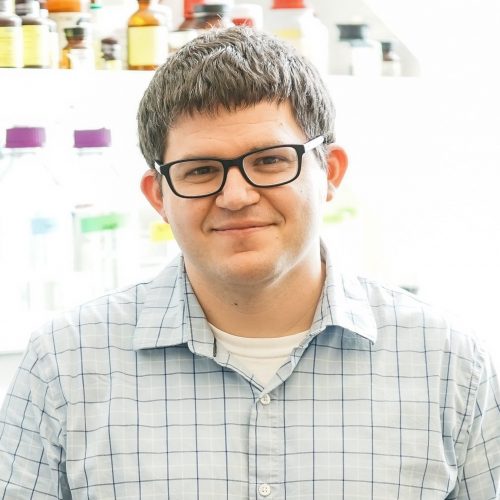
Ryan Steed, Ph.D.
Associate Professor; BiochemistryContact Information
- psteed@unca.edu
- 232-5122
- 110 Zeis Hall
Office Hours
- Monday 11:30 am - 1:00 pm
- Wednesday 10:30 am - 12:00 pm
- Friday 12:30 pm - 2:00 pm
- Note: And by appointment. Online (see Moodle for link) and limited in-person appointments
Courses Taught
- General Chemistry (class and labs)
- CHEM 312 Interdisciplinary Chemistry Project Lab
- CHEM 323 Foundations of Biochemistry
- CHEM 437: Biophysical Chemistry
- CHEM 430: Metabolism
Education
- PhD University of Wisconsin Madison
- BS Centre College
About Me
I graduated from Centre College, a small liberal arts college in Kentucky, in 2005 with a BS in Biochemistry & Molecular Biology. In graduate school at the University of Wisconsin-Madison, I started tinkering with biological machines. I earned a PhD in Biomolecular Chemistry in 2010 and then did postdoctoral research in biophysics at Vanderbilt University until 2014. After nine years devoted to research, I missed the classroom and the close student-faculty interaction at a liberal arts college, so I spent two years teaching general, biological, and biophysical chemistry at Carleton College in Minnesota. In 2016, I joined the faculty at UNCA where I can fulfill my interest in teaching and getting students hooked on research.
I live in Mills River with my wife and three children. Outside of UNCA, I enjoy drinking good beer, exploring the mountains, and dabbling in woodworking.
Research Interests
My research centers around the question of how the energy stored in an electrochemical gradient is used to power a biological nanomachine. My students and I are currently focusing on ATP synthase, the proton-driven rotary motor responsible for making most of the ATP (biological energy currency) on the planet. We are working to elucidate the mechanism by which ion movement through the membrane-embedded stator subunit generates torque on the rotor.
Current projects include:
- Probing the importance of amino acids at the rotor-stator interface using site-directed mutagenesis and biochemical assays.
- Uncovering structural dynamics within the stator subunit using electron paramagnetic resonance spectroscopy.
- Optimizing a reconstituted proteoliposome system to study the effects of lipid composition on ion transport.
Steed Lab
We are a group of biochemists tinkering with a biomolecular machine to discover its secrets. More technically, we probe the interactions and structural dynamics of the rotor and stator of ATP synthase to determine how an electrochemical gradient is used to power rotary motion. Learn more about the Steed Lab.